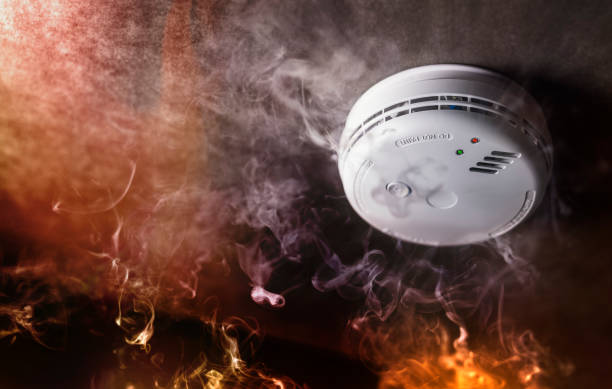
How to Protect Yourself Before a Fire Hazard for Your Home
Fire hazards are an unfortunate reality that can strike at any time, putting lives and property at risk. Taking proactive measures to prevent fires and ensure safety is crucial for every homeowner. By implementing effective fire prevention strategies, you can significantly reduce the chances of a devastating incident and safeguard your loved ones and possessions.
Understanding Common Fire Hazards at Home
Before diving into prevention tips, it’s important to recognize the most common fire hazards found in households:
- Electrical Malfunctions: Faulty wiring, overloaded circuits, and outdated appliances can lead to electrical fires.
- Cooking Accidents: Unattended cooking, grease fires, and flammable materials near stoves are major fire risks.
- Heating Equipment: Space heaters, fireplaces, and furnaces can ignite nearby combustible materials.
- Smoking Indoors: Careless disposal of cigarettes and smoking in bed can easily start fires.
- Flammable Liquids: Improper storage of cleaning agents, paints, and fuels can pose serious risks.
- Candles and Open Flames: Leaving candles unattended or placing them near flammable objects can be dangerous.
Fire Prevention Tips for Homeowners
1. Install Smoke Alarms and Fire Detectors
The first line of defense against fire is a properly installed and maintained smoke alarm system. Ensure the following:
- Install smoke alarms on every floor of your home, inside bedrooms, and outside sleeping areas.
- Test alarms monthly and replace batteries at least once a year.
- Consider interconnected smoke detectors that alert the entire house when triggered.
2. Maintain Electrical Safety
Electrical issues are a leading cause of house fires, making it essential to follow these precautions:
- Avoid overloading electrical outlets with multiple devices.
- Regularly inspect wiring for signs of wear and tear.
- Hire a licensed electrician to conduct an annual inspection of your home’s electrical system.
- Unplug appliances when not in use to reduce fire risks.
3. Practice Safe Cooking Habits
Since kitchens are hotspots for fires, adopting safe cooking practices can help prevent accidents:
- Never leave cooking unattended, especially when using high heat.
- Keep flammable objects such as dish towels and curtains away from the stove.
- Have a fire extinguisher within reach and know how to use it.
- Avoid wearing loose clothing that could catch fire while cooking.
4. Safe Heating Practices
During colder months, heating equipment can become a fire hazard. Follow these guidelines:
- Keep flammable materials at least three feet away from heat sources.
- Turn off portable heaters when leaving the room or going to sleep.
- Have your chimney and heating system inspected and cleaned annually.
5. Smoking Safety
If you or someone in your household smokes, take precautions to prevent fire incidents:
- Always smoke outside to reduce indoor fire risks.
- Use deep, sturdy ashtrays and keep them away from flammable materials.
- Ensure cigarettes are fully extinguished before disposal.
6. Store Flammable Materials Properly
Household chemicals and fuels should be stored safely to minimize fire hazards:
- Keep flammable liquids in well-ventilated areas, away from heat sources.
- Store gasoline and other fuels in approved containers.
- Dispose of oily rags safely, as they can spontaneously combust.
7. Develop and Practice a Fire Escape Plan
Having an emergency plan in place can save lives in case of a fire. Consider the following:
- Identify at least two exits from every room.
- Practice fire drills with all household members regularly.
- Designate a safe meeting place outside your home.
- Teach children how to escape safely and call emergency services.
Fire Protection Equipment to Have at Home
Equipping your home with fire protection tools is essential for quick response in an emergency. Some key items include:
- Fire Extinguishers: Keep them in accessible areas such as the kitchen and garage.
- Fire Blankets: Useful for smothering small fires.
- Carbon Monoxide Detectors: These can alert you to dangerous gas leaks that could lead to fires.
- Fire Ladders: For homes with multiple floors, fire escape ladders provide a quick exit.
Fire Insurance and Financial Preparedness
Even with preventive measures, fires can still occur. Protect your finances by:
- Investing in a comprehensive home insurance policy covering fire damage.
- Documenting valuables and keeping receipts for major purchases.
- Keeping copies of important documents in a fireproof safe or digital cloud storage.
What to Do If a Fire Occurs
Despite all precautions, knowing how to react during a fire can be life-saving:
- Stay low to avoid inhaling smoke and toxic gases.
- Close doors behind you to slow the spread of flames.
- Never use elevators; always take the stairs.
- If trapped, signal for help by waving a cloth from a window.
- Call emergency services immediately once you are safe.
Conclusion
Protecting your home from fire hazards requires a combination of awareness, preparedness, and proactive measures. By identifying potential risks, practicing safety habits, and equipping your home with the right tools, you can significantly reduce the likelihood of a fire. Remember, fire safety is a continuous process that involves regular maintenance and education. Stay vigilant, stay safe!

